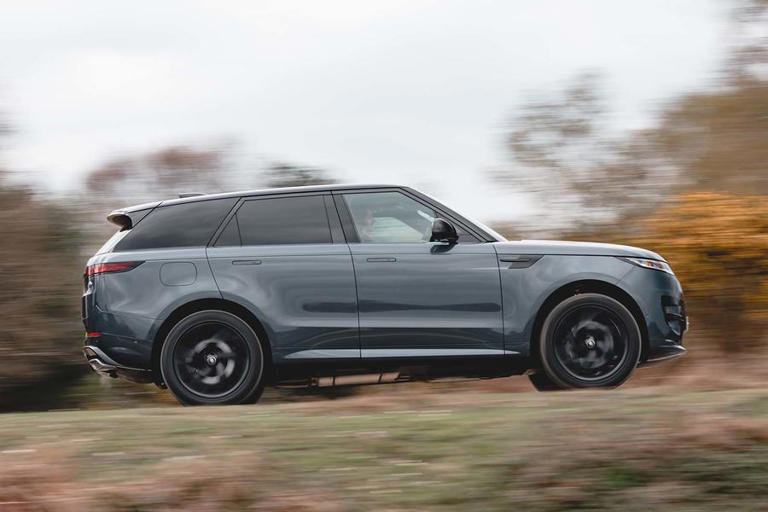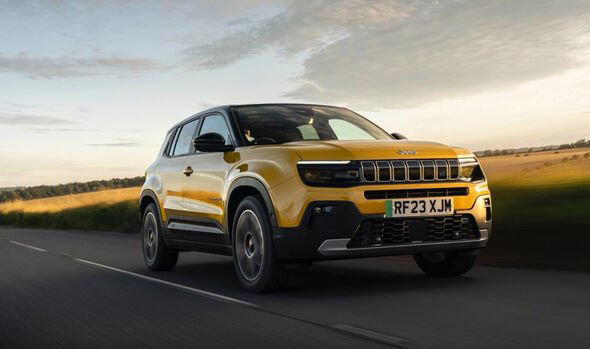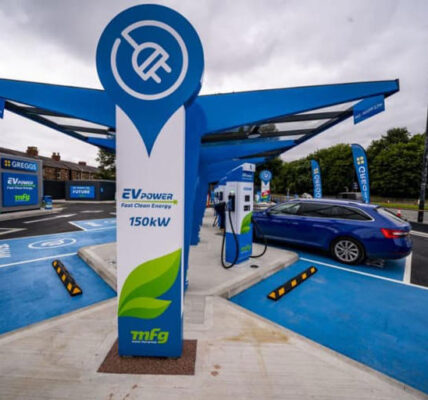- Homepage
- Automobiles
- “Ford Electric Vehicles Strategy: 5 Surprising Ways to Dominate the Market”
“Ford Electric Vehicles Strategy: 5 Surprising Ways to Dominate the Market”
Table of Contents
ToggleFord Electric Vehicles Strategy
Explore Ford’s strategy shift towards hybrid vehicles and the delay in its electric vehicle rollout amid increasing competition from China in the EV market. Discover how Ford aims to prioritize profitability and sustainability while adapting to changing consumer demands and regulatory pressures.

© Provided by The Telegraph
Introduction
Ford electric vehicles strategy revolves around a notable shift towards prioritizing hybrid vehicles over electric ones. This strategic decision comes amidst growing competition from China in the electric vehicle (EV) market. Ford, an iconic US car brand, has announced a delay in the rollout of its electric vehicles, choosing instead to focus on hybrid models. This move reflects the company’s commitment to ensuring profitability and sustainability in its EV business, despite facing challenges from global competitors.
Ford’s Strategic Shift
Ford had initially planned to launch new electric vehicle models this year, but the timeline has been pushed back to 2027. This delay indicates a recalibration of Ford’s approach to EV manufacturing and market positioning. The company remains committed to investing in electric vehicles but recognizes the need to prioritize the development of hybrid powertrains across its entire lineup in North America.
Rationale Behind the Delay
The decision to delay the rollout of electric vehicles is driven by several factors. Ford acknowledges the increasing pressure from China, which currently dominates the EV market. By reassessing its timeline and focusing on hybrid models, Ford aims to ensure that its EV business is not only profitable but also sustainable in the long term. Jim Farley, President and CEO at Ford, emphasizes the importance of bringing the right mix of gas, hybrid, and fully electric vehicles to market at the right time.
Consumer Interest and Sales Performance
Despite the shift in strategy, Ford has seen a significant increase in electric vehicle sales, with a notable 86% growth in the first quarter of 2024. Similarly, hybrid sales have risen by 42%, indicating a strong interest from consumers in these models. However, the competitive landscape and evolving market dynamics have prompted Ford to reassess its priorities and adapt accordingly.
Investment in Next-Generation EVs
Ford remains committed to investing in next-generation electric vehicles that are fully software-enabled and equipped with innovative digital experiences. These EVs are expected to offer improved performance and a range of potential services to enhance the overall driving experience. By focusing on breakthrough technologies, Ford aims to stay competitive in the rapidly evolving automotive industry.

Impact on Manufacturing and Employees
The decision to delay the rollout of electric vehicles may have implications for Ford’s manufacturing operations and employees, particularly in regions like Canada where the company has a significant presence. However, Ford Canada’s President and CEO, Bev Goodman, assures that this change in timeline is aimed at supporting the company’s long-term growth and viability. While adjustments may be necessary, Ford remains committed to manufacturing in Canada and believes that this decision will ultimately benefit its employees and dealers.
Teased Electric Car and Market Competition
Ford had teased a new electric car that was expected to compete with Tesla in terms of quality and price. This model, anticipated to launch in 2026, was touted to feature a lithium-iron-phosphate battery and be approximately 30% cheaper than a comparable Tesla vehicle. However, the delay in its rollout suggests that Ford is reevaluating its product strategy and market positioning in response to evolving consumer preferences and competitive pressures.
Global Electrification Trends
The global race towards electrification has been accelerated by ambitious targets set by governments, such as the UK’s goal to achieve zero-emission vehicle sales by 2030. Automakers worldwide are under increasing pressure to innovate and adapt to meet these targets or face fines for non-compliance. Despite the challenges posed by China’s competitive pricing and Tesla’s strategic shifts, there remains significant potential for growth and innovation in the electric vehicle market globally.
Conclusion
Ford’s electric vehicles strategy reflects a strategic shift towards prioritizing hybrid models over electric ones, driven by the need to ensure profitability and sustainability in its EV business. While the delay in the rollout of electric vehicles may pose challenges, Ford remains committed to investing in next-generation EV technology and delivering innovative solutions to meet the evolving needs of consumers. By focusing on breakthrough technologies and adapting to changing market dynamics, Ford aims to stay competitive in the rapidly evolving automotive industry.
ALSO READ:
“Revolutionizing Air Travel: NASA’s Quiet Supersonic Jet Revealed!”




